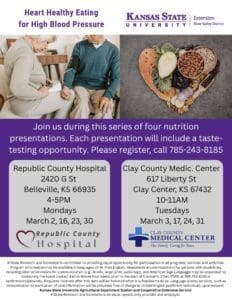K-State food scientist says undercooked eggs can spread foodborne illness
By Maddy Rohr, K-State Research and Extension news service
MANHATTAN, Kan – The perfect hard-boiled egg is essential to many Easter traditions, including a common appetizer: deviled eggs. Kansas State University food scientist Karen Blakeslee said cooking eggs properly is key to preventing foodborne illness.
“Undercooked hard boiled eggs can leave the yolk and possibly the white runny and any possible Salmonella bacteria can survive. This could lead to foodborne illness,” Blakeslee said.
To prepare hard-boiled eggs safely, place fresh eggs in a saucepan and cover with water by one inch. Then, cover the pan and bring to a boil. Remove from the burner and let the eggs sit in the hot water for 20 minutes.
“This helps keep the eggs tender and not get rubbery,” said Blakeslee, who is also coordinator of K-State’s Rapid Response Center for food science.
Blakeslee recommends placing the pan in the sink and allowing cold water to pour over the hot eggs until they are cool. Then remove eggs from the water and chill in the refrigerator.
“They can be stored up to one week, unpeeled,” Blakeslee said. “Once peeled, they can be used immediately or keep them cold in the refrigerator and use within one to two days.”
Blakeslee does not recommend eating hard-boiled eggs used for Easter egg hunts because bacteria can grow when the eggs are left in warm temperatures for long periods of time, or the eggs can be easily damaged.
“Easter egg hunts are fun for kids, but they are a population that are more susceptible to foodborne illness and could get seriously ill,” Blakeslee said. “A better option, that is much safer, is to use plastic eggs filled with fun treats. Just be mindful of any kids who might have food allergies. Keep your Easter egg hunt fun.”
Blakeslee publishes a monthly newsletter called You Asked It! that provides numerous tips on being safe and healthy. More information also is available from local extension offices in Kansas.













